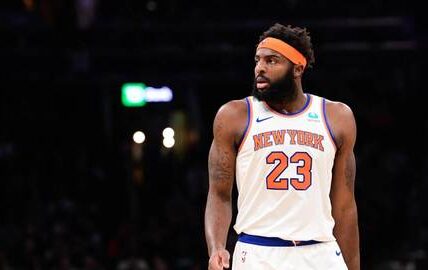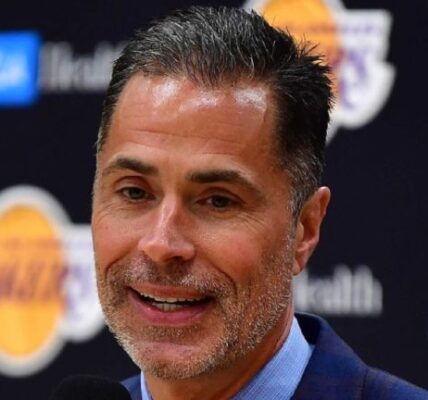It took Rob Pelinka only 96 hours to remind Lakers fans why he’s not a great GM. He quickly deflated any praise.
In sports, especially the NBA, the focus is on recent success. When teams or individuals succeed, past mistakes fade away, but when they fail, it drowns out all previous accomplishments. This pattern is exactly what happened to Rob Pelinka, the Lakers’ Vice President of Basketball Operations and General Manager. Pelinka is the decision-maker behind all the Lakers’ basketball moves, from signing players to trading for MVP-caliber stars.
This became evident when the Dallas Mavericks surprised the NBA world by trading superstar guard Luka Doncic to the Lakers on Saturday night. The deal was shocking because top-tier players rarely get traded, especially without their consent or without any warning. It was an unexpected moment in NBA history.
What made the trade even more shocking was the Mavericks’ return. Anthony Davis was the main piece coming back, along with young player Max Christie and a 2029 first-round pick. The Lakers, however, didn’t part with rookie Dalton Knecht, their 2031 first-round pick, or other assets. Although it wasn’t a cheap deal, Pelinka acquired a 25-year-old first-team All-NBA player without sacrificing too much.
Suddenly, Pelinka was hailed as a genius, with praise pouring in for his negotiation skills. His history as Kobe Bryant’s agent had helped him get this deal done, leading to the Lakers adding another MVP-caliber player. Fans were impressed, seeing Pelinka as a master deal-maker.
However, while Pelinka did win the Luka Doncic trade by securing a great return with minimal losses, one smart move doesn’t automatically make someone a shrewd GM.
Just 96 hours later, the bubble of Pelinka’s “GM extraordinaire” image popped.
Pelinka made a questionable move with the Mark Williams trade. On Wednesday, he sent a package of assets saved from the Doncic trade to the Charlotte Hornets for center Mark Williams. This deal included rookie Dalton Knecht, Cam Reddish, and multiple future picks.
The reasoning behind the trade was clear. After moving Anthony Davis, the Lakers needed a center, and Doncic thrived with a rim-running center. Williams, known for his efficient offense, seemed like a good fit, especially as he averaged 15.6 points and 2.5 assists per game this season.
But Williams has been injured, missing significant time earlier this season with a foot injury and having a history of injuries, including a back issue. Last season, he only played 19 games. He also hasn’t developed defensively as expected. While he was a strong defender in college, in the NBA, he’s been a liability. The Hornets are already a weak defensive team, and when Williams plays, they perform even worse defensively.
Despite these concerns, Pelinka focused on Doncic’s desire for a center, overlooking Williams’ flaws, and traded a significant package for him. Couldn’t a more proven, defensively capable center have been acquired for such a strong package?
Pelinka has a history of bad trades influenced by star players. The worst example is the Russell Westbrook trade, where LeBron James pushed for the acquisition of Westbrook, leading the Lakers to trade useful assets for a player who hadn’t accepted a reduced role. Westbrook’s presence ultimately hurtthe Lakers’ chances.




